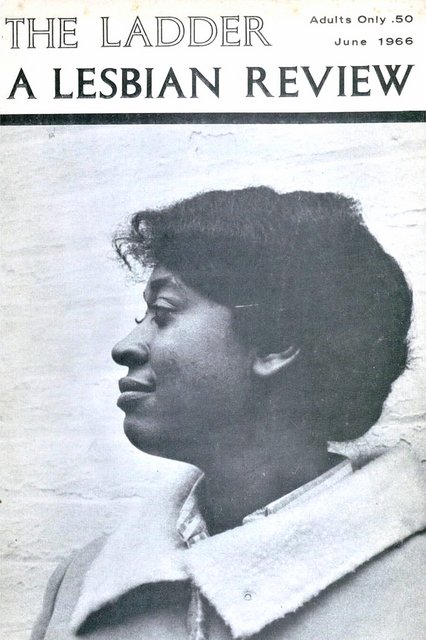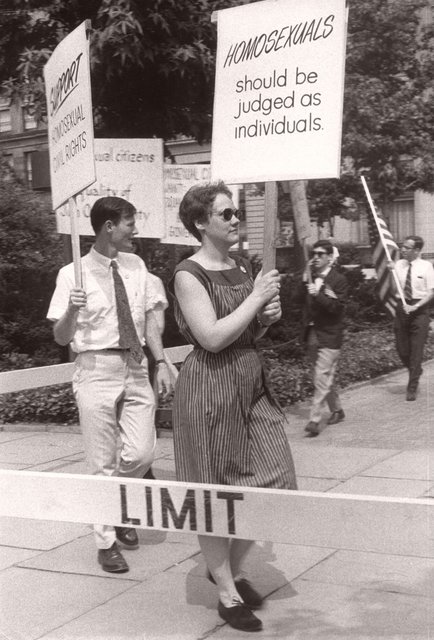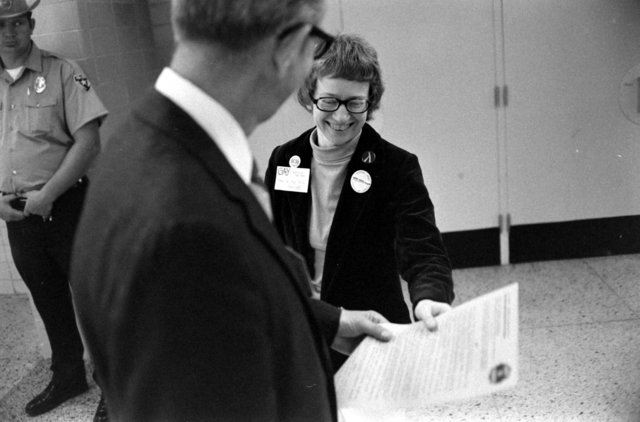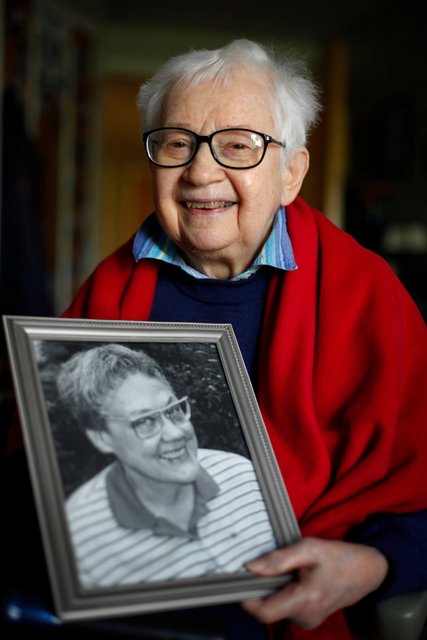
 |
|
|
#1081 | |
|
Member
How Do You Identify?:
As a very feminine woman. Relationship Status:
Busy dating a special someone here at home Join Date: May 2010
Location: In a small community
Posts: 16,265
Thanks: 29,369
Thanked 33,632 Times in 10,724 Posts
Rep Power: 21474868            |
Quote:
Good memories, indeed. 
__________________
“The way someone treats you is not a reflection of your worth: It’s a reflection of their emotional capacity,” — Jillian Turecki. ”Without justice, democracy dies,” — Jess Michaels (Epstein survivor).       |
|
|
|

|
|
|
#1082 |
|
Member
How Do You Identify?:
Butch Preferred Pronoun?:
she Relationship Status:
they are my world Join Date: Nov 2009
Location: In a galaxy far, far away
Posts: 959
Thanks: 1,002
Thanked 1,728 Times in 544 Posts
Rep Power: 12678954            |
__________________
May the Force be with you! |
|
|

|
| The Following 8 Users Say Thank You to Jedi For This Useful Post: |
|
|
#1083 | |
|
Practically Lives Here
How Do You Identify?:
Queer Stone Femme Girl of the Unicorn Variety Preferred Pronoun?:
She, as in 'She's a GEM' Join Date: Nov 2009
Location: The roads are narrow here
Posts: 36,631
Thanks: 182,498
Thanked 107,907 Times in 25,665 Posts
Rep Power: 21474889            |
Quote:
|
|
|
|

|
| The Following 7 Users Say Thank You to Gemme For This Useful Post: |
|
|
#1084 |
|
Member
How Do You Identify?:
As a very feminine woman. Relationship Status:
Busy dating a special someone here at home Join Date: May 2010
Location: In a small community
Posts: 16,265
Thanks: 29,369
Thanked 33,632 Times in 10,724 Posts
Rep Power: 21474868            |
Morrocaan-Israeli fashion designer Alber Elbaz passed last night from Covid-19.
He is survived by his life-long partner, Alex Koo. To read more about the life of Alber Elbaz, you can find a CNN article here. 
__________________
“The way someone treats you is not a reflection of your worth: It’s a reflection of their emotional capacity,” — Jillian Turecki. ”Without justice, democracy dies,” — Jess Michaels (Epstein survivor).       |
|
|

|
| The Following 5 Users Say Thank You to Kätzchen For This Useful Post: |
|
|
#1085 |
|
Superlative Soul Sister
How Do You Identify?:
Lesbian stone femme Preferred Pronoun?:
She, her Relationship Status:
Moving in a single file and sometimes a sinner. Join Date: Dec 2013
Location: Cottage of Content
Posts: 13,720
Thanks: 41,493
Thanked 34,758 Times in 8,974 Posts
Rep Power: 21474861            |
Daniel Kaminsky, Internet Security Savior, Dies at 42
If you are reading this obituary online, you owe your digital safety to him.  Daniel Kaminsky, at his Brooklyn office in 2010, was widely hailed after finding a serious flaw in the internet’s basic plumbing.Credit...Chester Higgins Jr./The New York Times By Nicole Perlroth April 27, 2021 Daniel Kaminsky, a security researcher known for his discovery of a fundamental flaw in the fabric of the internet, died on Friday at his home in San Francisco. He was 42. His aunt, Dr. Toby Maurer, said the cause was diabetes ketoacidosis, a serious diabetic condition that led to his frequent hospitalization in recent years. In 2008, Mr. Kaminsky was widely hailed as a latter-day, digital Paul Revere after he found a serious flaw in the internet’s basic plumbing that could allow skilled coders to take over websites, siphon off bank credentials or even shut down the internet. Mr. Kaminsky alerted the Department of Homeland Security, executives at Microsoft and Cisco, and other internet security experts to the problem and helped spearhead a patch. He was a respected practitioner of “penetration testing,” the business of compromising the security of computer systems at the behest of owners who want to harden their systems from attack. It was a profession that his mother, Trudy Maurer, said he first developed a knack for at 4 years old after his father gifted him a computer from Radio Shack. By age 5, Mrs. Maurer said, Mr. Kaminsky had taught himself to code. His childhood paralleled the 1983 movie “War Games,” in which a young child, played by Matthew Broderick, unwittingly accesses a U.S. military supercomputer. When Mr. Kaminsky was 11, his mother said, she received an angry phone call from someone who identified himself as a network administrator for the Western United States. The administrator said someone at her residence was “monkeying around in territories where he shouldn’t be monkeying around.” Without her knowledge, Mr. Kaminsky had been examining military websites. The administrator vowed to “punish” him by cutting off the family’s internet access. Mrs. Maurer warned the administrator that if he made good on his threat, she would take out an advertisement in The San Francisco Chronicle denouncing the Pentagon’s security. “I will take out an ad that says, ‘Your security is so crappy, even an 11-year-old can break it,’” Mrs. Maurer recalled telling the administrator, in an interview on Monday. They settled on a compromise punishment: three days without internet. Nearly two decades after he lost his access to the internet, Mr. Kaminsky wound up saving it. What Mr. Kaminsky discovered in 2008 was a problem with the internet’s basic address system, known as the Domain Name System, or DNS, a dynamic phone book that converts human-friendly web addresses like NYTimes.com and Google.com into their machine-friendly numeric counterparts. He found a way that thieves or spies could covertly manipulate DNS traffic so that a person typing the website for a bank would instead be redirected to an impostor site that could steal the user’s account number and password. Mr. Kaminsky’s first call was to Paul Vixie, a longtime steward of the internet’s DNS system. The usually unflappable Mr. Vixie recalled that his panic grew as he listened to Mr. Kaminsky’s explanation. “I realized we were looking down the gun barrel of history,” Mr. Vixie recalled. “It meant everything in the digital universe was going to have to get patched.” Mr. Vixie asked Mr. Kaminsky if he had a fix in mind. “He said, ‘We are going to get all the makers of DNS software to coordinate a fix, implement it at the same time and keep it a secret until I present my findings at Black Hat,” Mr. Vixie said, referring to an annual hacking conference in Las Vegas. Mr. Kaminsky, then the director of penetration testing at IOActive, a security firm based in Seattle, had developed a close working relationship with Microsoft. He and Mr. Vixie persuaded Microsoft to host a secret convention of the world’s senior cybersecurity experts. “I remember calling people and telling them, ‘I’m not at liberty to tell you what it is, but there’s this thing and you will need to get on a plane and meet us in this room at Microsoft on such-and-such date,’” Mr. Vixie said. Over the course of several days, they cobbled together a solution in stealth, a fix that Mr. Vixie compared to dog excrement. But given the threat of internet apocalypse, he recalled it as being the best dog excrement “we could have ever come up with.” By the time Mr. Kaminsky took the stage at Black Hat that August, the web had been spared. Mr. Kaminsky, who typically donned a T-shirt, shorts and flip flops, appeared onstage in a suit his mother had bought for him. She had also requested that he wear closed-toed shoes. He sort of complied — twirling onto the stage in roller skates. When his talk was complete, Mr. Kaminsky was approached by a stranger in the crowd. It was the administrator who had kicked Mr. Kaminsky off the internet years earlier. Now, he wanted to thank Mr. Kaminsky and to ask for an introduction to “the meanest mother he ever met.” While his DNS fix was Mr. Kaminsky’s most celebrated contribution to internet security, it was hardly his only contribution. In 2005, after researchers discovered Sony BMG was covertly installing software on PCs to combat music piracy, Sony executives played down the move. Mr. Kaminsky forced the issue into public awareness after discovering Sony’s software had infected more than 568,000 computers. “He did things because they were the right thing to do, not because they would elicit financial gain,” his mother, Mrs. Maurer, said. (When a reporter asked Mr. Kaminsky why he did not exploit the DNS flaw to become immensely wealthy, he said that doing so would have been morally wrong, and that he did not want his mother to have to visit him in prison.) Silicon Valley’s giants often sought Mr. Kaminsky’s expertise and recruited him with lucrative job offers to serve as their chief information security officers. He politely declined, preferring the quiet yeoman’s work of internet security. In a community known for its biting, sometimes misogynistic discourse on Twitter, Mr. Kaminsky stood out for his consistent empathy. He disdained Twitter pile-ons and served as a generous mentor to journalists and aspiring hackers. Mr. Kaminsky would often quietly foot a hotel or travel bill to Black Hat for those who could not otherwise afford it. When a mentee broke up with her boyfriend, Mr. Kaminsky bought her a plane ticket to see him, believing they were meant to be. (They married.) He was outspoken when privacy and security were on the line. After the F.B.I. tried to force Apple, in federal court, to weaken the encryption of its iPhones in 2015, James B. Comey, who was then the F.B.I. director, testified to Congress in 2016 that he was not asking for a backdoor, but for Apple to “take the vicious guard dog away and let us pick the lock.” “I am that vicious guard dog, and that used to be a compliment,” Mr. Kaminsky told this reporter at the time. “The question for Mr. Comey is: What is the policy of the United States right now? Is it to make things more secure or to make them less secure?” The Electronic Frontier Foundation, a group that promotes civil liberties, said in a tweet on Saturday that Mr. Kaminsky was a “friend of freedom and embodiment of the true hacker spirit.” Jeff Moss, the founder of the DefCon and Black Hat hacking conferences, suggested that Mr. Kaminsky be inducted into the Internet Hall of Fame. Mr. Kaminsky’s empathy extended to his many side projects. When a friend struggled with color blindness, he developed the DanKam, a mobile app that uses a phone’s camera to decipher colors otherwise indecipherable to the colorblind. When his grandmother Raia Maurer, now 97, experienced hearing loss, he refocused his efforts on hearing-aid technology. And when his aunt, a dermatologist, told him she could no longer treat under-resourced patients for AIDS-related skin diseases, some potentially fatal, in sub-Saharan Africa and Rohingya refugee camps, Mr. Kaminsky helped develop telemedicine tools for the National Institutes of Health and AMPATH, a health project led by Indiana University that he sought to bring to San Francisco during the coronavirus pandemic. In addition to his mother and grandmother, Mr. Kaminsky is survived by his sister, Angie Roberts, and stepfather, Randy Howell. Security was always Mr. Kaminsky’s lifework, most recently as the chief scientist at White Ops, a security company he helped found that was recently renamed HUMAN. He was not above criticizing his own industry. In a 2016 keynote address at Black Hat, he said the industry had fallen far short of expectations. “Everybody looks busy, but the house still burns,” he said, before pitching the cyber equivalent of the Manhattan Project. “The internet was never designed to be secure,” Mr. Kaminsky recalled in a 2016 interview. “The internet was designed to move pictures of cats. We are very good at moving pictures of cats.” But, he added, “we didn’t think you’d be moving trillions of dollars onto this. What are we going to do? And here’s the answer: Some of us got to go out and fix it.” Nicole Perlroth is a cybersecurity and digital espionage reporter. She is the bestselling author of the book, “This Is How They Tell Me The World Ends,” about the global cyber arms race. https://www.nytimes.com/2021/04/27/t...gtype=Homepage |
|
|

|
| The Following 8 Users Say Thank You to Orema For This Useful Post: |
|
|
#1086 |
|
Practically Lives Here
How Do You Identify?:
Queer Stone Femme Girl of the Unicorn Variety Preferred Pronoun?:
She, as in 'She's a GEM' Join Date: Nov 2009
Location: The roads are narrow here
Posts: 36,631
Thanks: 182,498
Thanked 107,907 Times in 25,665 Posts
Rep Power: 21474889            |
Olympia Dukakis passed away. She was a character actress best known for her Oscar-winning supporting turn in Norman Jewison’s “Moonstruck” and for her role as the wealthy widow in “Steel Magnolias,”. She was 89.
I liked her a lot. Last edited by Gemme; 05-01-2021 at 09:48 PM. |
|
|

|
| The Following 10 Users Say Thank You to Gemme For This Useful Post: |
|
|
#1087 |
|
Infamous Member
How Do You Identify?:
High Femme Ma'am Preferred Pronoun?:
Ma'am Relationship Status:
widowed - involved, poly  Join Date: May 2010
Location: Georgia
Posts: 6,461
Thanks: 39,740
Thanked 28,529 Times in 5,831 Posts
Rep Power: 21474858            |
I liked her a lot too. She played trans woman Anna Madrigal in the 1990s BBC series of Armistead Maupin's Tales of the City. It aired on PBS in the United States. Olympia Dukakis was a big supporter of LGBT rights.
__________________
-GeorgiaMa'am  It's true that you are blessed and lucky It's true that you are touched by something that will grow and bloom in you. -10,000 Maniacs |
|
|

|
|
|
#1088 |
|
Practically Lives Here
How Do You Identify?:
Queer Stone Femme Girl of the Unicorn Variety Preferred Pronoun?:
She, as in 'She's a GEM' Join Date: Nov 2009
Location: The roads are narrow here
Posts: 36,631
Thanks: 182,498
Thanked 107,907 Times in 25,665 Posts
Rep Power: 21474889            |
Actress Tawny Kitaen, who appeared in "Bachelor Party" and Whitesnake and other hair metal bands' 1980s rock videos, has died in California. She was 59.
Kitaen -- whose real first name was Julie -- died Friday at home in Newport Beach, according to a release from the Orange County Coroner's Office. The cause of death is not yet known. In 1984, she co-starred in an early Tom Hanks comedy, "Bachelor Party." She then appeared in music videos for heavy metal bands Ratt and Whitesnake, including in "Back for More" and "Is This Love." Kitaen memorably performed the splits and other moves on two Jaguar hoods in Whitesnake's "Here I Go Again" and later married the lead singer, David Coverdale. She appeared on TV shows like "The New WKRP in Cincinnati," "Hercules: The Legendary Journeys" and reality shows such as "Celebrity Rehab with Dr. Drew" and "Botched." |
|
|

|
|
|
#1089 |
|
Member
How Do You Identify?:
Butch Preferred Pronoun?:
she Relationship Status:
they are my world Join Date: Nov 2009
Location: In a galaxy far, far away
Posts: 959
Thanks: 1,002
Thanked 1,728 Times in 544 Posts
Rep Power: 12678954            |
__________________
May the Force be with you! |
|
|

|
|
|
#1090 |
|
Member
How Do You Identify?:
Butch Preferred Pronoun?:
she Relationship Status:
they are my world Join Date: Nov 2009
Location: In a galaxy far, far away
Posts: 959
Thanks: 1,002
Thanked 1,728 Times in 544 Posts
Rep Power: 12678954            |
__________________
May the Force be with you! |
|
|

|
|
|
#1091 |
|
Superlative Soul Sister
How Do You Identify?:
Lesbian stone femme Preferred Pronoun?:
She, her Relationship Status:
Moving in a single file and sometimes a sinner. Join Date: Dec 2013
Location: Cottage of Content
Posts: 13,720
Thanks: 41,493
Thanked 34,758 Times in 8,974 Posts
Rep Power: 21474861            |
Kay Tobin Lahusen, Gay Rights Activist and Photographer, Dies at 91 By Daniel E. Slotnik, New York Times
She and her partner, Barbara Gittings, were on the front lines long before Stonewall, and Ms. Lahusen photographed protests during the movement’s earliest days.  The photographer and activist Kay Tobin Lahusen, right, at a gay rights demonstration in front of Independence Hall in Philadelphia in 1967. She and her partner, Barbara Gittings, helped organize a number of protests in the 1960s. Credit: Associated Press Kay Tobin Lahusen, a prominent gay rights activist whose photographs documented the movement’s earliest days and depicted lesbians who were out when they were virtually absent from popular culture, died on Wednesday in West Chester, Pa. She was 91. Her death in a hospital was confirmed by Malcolm Lazin, a longtime friend and the executive director of the Equality Forum, an L.G.B.T.Q. civil rights group. Ms. Lahusen and her longtime partner, Barbara Gittings, were at the forefront of the lesbian rights movement, determined to make whom they loved a source of pride rather than shame. They were early members of the Daughters of Bilitis, the first national lesbian organization, and soon spoke out about their sexuality and their demands for equality at a time when gay rights groups were less vocal. In the 1960s, they helped organize protests at a National Council of Churches meeting, the Pentagon and the White House well before the Stonewall uprising in Greenwich Village in 1969, a pivotal event for the gay rights movement. They helped lesbians realize that they were not alone by producing The Ladder, a newsletter published by the Daughters that was the first nationally distributed lesbian journal in the United States. Ms. Gittings was The Ladder’s editor, and Ms. Lahusen became an important contributor, writing under the surname Tobin, which she had picked out of the phone book, she said, because it was easy to pronounce, unlike Lahusen (pronounced la-HOOZ-en). She also photographed many of the earliest gay rights protests, providing important documentation of a period when many gay people chose to remain in the closet.  Ms. Lahusen persuaded women to have their pictures taken for the cover of the lesbian journal The Ladder. Among them was Ernestine Eckstein, an African American lesbian activist who picketed the White House for gay rights in 1965. Credit: Kay Tobin Lahusen, via New York Public Library “Occasionally somebody would bring a camera to a picket, but I was the only one who went at it in a sustained way,” Ms. Lahusen said in an interview for this obituary in 2019. Some of her protest photographs appeared in The Ladder’s inside pages; with few gay people wanting their faces to appear in a magazine, let alone on the cover, the journal’s covers were given over to illustrations. “I said, ‘What we really need are some live lesbians,’ and we couldn’t find any,” Ms. Lahusen said. By the mid-1960s, however, Ms. Lahusen had persuaded some women to pose for cover portraits, among them Ernestine Eckstein, an African American lesbian activist who picketed the White House for gay rights in 1965, and Lilli Vincenz, who was discharged from the Women’s Army Corps after she was outed. In a 1993 interview with Outhistory.org, Ms. Lahusen described her goal then as “taking our minority out from under wraps, and what you might call the normalization of gay.”  One of Ms. Lahusen’s photographs captured Ms. Gittings, her partner, at a protest in 1966. Credit: Kay Tobin Lahusen As the 1960s wore on, Ms. Lahusen and Ms. Gittings came to believe that the Daughters of Bilitis’ approach was too conciliatory, that it was more focused on signaling respectability than fighting for equal rights. “It was all aimed at reforming laggard lesbians,” she said. They began to work outside the organization, finding common cause with gay rights activists like Franklin Kameny. Ms. Lahusen helped Mr. Kameny and Ms. Gittings lobby the American Psychiatric Association to remove homosexuality from its list of mental illnesses, in part by persuading a practicing psychiatrist to testify about being gay at the organization’s national convention in Dallas in 1972. The psychiatrist, Dr. John E. Fryer, addressed the association under the name Dr. H. Anonymous, wearing a mask and a wig so that he would not face professional repercussions. Ms. Lahusen photographed him, fully costumed, with Ms. Gittings and Mr. Kameny. The next year the association removed homosexuality from the Diagnostic and Statistical Manual for Mental Disorders. Ms. Lahusen’s photographs offer a rare visual record of the gay rights movement’s earliest days. Many of them are now in the New York Public Library’s archive and were a major part of the 2019 exhibition “Love & Resistance: Stonewall 50,” which celebrated the 50th anniversary of the uprising. Marcia M. Gallo, a social movement historian and the author of “Different Daughters: A History of the Daughters of Bilitis and the Rise of the Lesbian Rights Movement” (2006), described Ms. Lahusen in an interview as “one of the key foundational organizers and chroniclers of the L.G.B.T.Q. movement from the ’60s on.” Ms. Gallo said that Ms. Lahusen had been eager to speak about the earliest days of the movement, and that she and Ms. Gittings had organized a gay lunch-table group at the care facility where they lived in Kennett Square, Pa. “She was organizing into her 90s,” Ms. Gallo said.  Ms. Lahusen in 1971. She and Ms. Gittings were at the forefront of the lesbian rights movement in its early days. Credit: Grey Villet/The LIFE Picture Collection, via Getty Images Katherine Lahusen was born on Jan. 5, 1930, in Cincinnati. She was adopted soon afterward by her grandparents George and Katherine (Walker) Lahusen. Her grandfather sold cable for a steel company; her grandmother was a homemaker. Katherine first realized that she was attracted to women when she was barely a teenager, developing crushes on actresses like Katharine Hepburn. It was the 1940s, and many Americans viewed gay people as deviants. But Ms. Lahusen refused to internalize society’s prejudices. “I decided that I was right and the world was wrong and that there couldn’t be anything wrong with this kind of love,” she was quoted as saying in “Different Daughters.” She went to a private elementary school and graduated from Withrow High School in Cincinnati in 1948. She followed a girlfriend to Ohio State University, where she majored in English and planned to become a teacher. Ms. Lahusen graduated in 1952 and moved in with her girlfriend. But the girlfriend soon had second thoughts about their relationship. “She believed that we couldn’t have a good life together,” Ms. Lahusen said. “She wanted to have a white picket fence and a hubby, and she wanted to have children.”  Ms. Lahusen in 2012 with a portrait of her late partner, Ms. Gittings. Credit: Matt Rourke/Associated Press Ms. Gittings became her partner, and they lived together for decades in Philadelphia, where an apartment they shared early on was honored with a historic marker in 2016. Ms. Gittings and Ms. Lahusen supported their activism by working different jobs, Ms. Lahusen as a waitress and in a music store. In 1972 she and Randy Wicker published “The Gay Crusaders,” one of the first collections of interviews with prominent gay rights figures. Ms. Gittings died in 2007, before the Supreme Court legalized same-sex marriage in 2015. [Read Ms. Gittings’s obituary in The Times here] No immediate family members survive. Ms. Lahusen said she was overjoyed by how far gay rights had come, but she cautioned young activists against complacency. “I think some of these advances, as wonderful as they are, are being taken for granted, even now,” she said. “They need to be codified into law.” ____________ Daniel E. Slotnik is a general assignment reporter on the Metro desk and a 2020 New York Times reporting fellow. A version of this article appears in print on May 28, 2021, Section B, Page 11 of the New York edition with the headline: Kay Tobin Lahusen, 91, Lens on the Front Lines Before Stonewall, Dies. https://www.nytimes.com/2007/03/15/o...5gittings.html |
|
|

|
| The Following 11 Users Say Thank You to Orema For This Useful Post: |
|
|
#1092 |
|
Member
How Do You Identify?:
Butch Preferred Pronoun?:
she Relationship Status:
they are my world Join Date: Nov 2009
Location: In a galaxy far, far away
Posts: 959
Thanks: 1,002
Thanked 1,728 Times in 544 Posts
Rep Power: 12678954            |
https://www.cnn.com/2021/06/13/us/ne...superman-dies/
Ned Beatty dead at 83.
__________________
May the Force be with you! |
|
|

|
|
|
#1093 |
|
Practically Lives Here
How Do You Identify?:
Butch Relationship Status:
..... Join Date: Nov 2009
Location: 30 minute ferry ride from Seattle
Posts: 38,565
Thanks: 20,811
Thanked 33,548 Times in 14,914 Posts
Rep Power: 21474890            |
Eloise Greenfield, Who Wrote to Enlighten Black Children, Dies at 92. In nearly 50 books, written in poetry and prose, she described the lives of ordinary people and heroes like Rosa Parks and Paul Robeson. “Eloise Greenfield brought joy and enlightenment into the world,” the Ezra Jack Keats Foundation, which celebrates diversity in children’s literature, said in a message on Twitter after her death. “At the same time she broadened the path toward a more diverse American literature for children.”
Ms. Greenfield turned to children’s books after joining the D.C. Black Writers’ Workshop in 1971, receiving encouragement from the head of the workshop’s children’s book division to write a biography of Parks for young readers. That book was published in 1973, a year after she published “Bubbles” (later retitled “Good News”), about a boy learning to read. Ms. Greenfield began writing for children in her early 40s with a mission to “document our existence and depict African Americans living, as we do in real life,” she told the website Brown Bookshelf in 2008. In 48 books, she wrote about everyday subjects (the things a young girl loves, a boy rapping, a father’s death) and historical figures (biographies of Paul Robeson, Rosa Parks and Mary McLeod Bethune). For her book “The Great Migration: Journey to the North” (2010), Ms. Greenfield drew on family history — like her parents’ decision in 1929 to leave Parmele, N.C., where she was born, for Washington when she was three months old. And she plumbed Black history in the poetry collection “The Women Who Caught the Babies: A Story of African American Midwives” (2019) Eloise was such a frequent reader of books from her local library that she got a part-time job there after graduating from high school. Early on, she wanted to teach, so she enrolled in Miner Teachers College (ultimately to be absorbed by the University of the District of Columbia), but left during her junior year because of her shyness and discomfort at being the center of students’ attention. For the next 20 years or so she held various jobs, including one as a clerk-typist at the United States Patent and Trademark Office. In the 1960s, she wrote poems and short stories, but she met with a lot of rejection. One poem, “To a Violin,” was published in 1962 in The Hartford Times in Connecticut (it closed in 1976), and some of her stories were accepted by Negro Digest (later Black World). Her work is the most illustrative I’ve ever worked with,” Ms. Gilchrist said by phone. “I could see the pictures through her word selection, and, together with her rhythm and rhyme, the words were easy to illustrate.” Ms. Greenfield’s honors include the Coretta Scott King Author Award in 1978 for “Africa Dream,” about a Black girl’s nocturnal vision of visiting her ancestral homeland, and the Education for Liberation Award in 2016 from Teaching for Change, an organization that gives parents and teachers tools to help students learn to “read, write and change the world. ”“When I write, I’m composing — combining meanings, the rhythms, the melody of language, in the hope that it can be a gift to others,” she said in 2018 when she accepted the Coretta Scott King-Virginia Hamilton Award for lifetime achievement, which the American Library Association gives to Black authors and illustrators. |
|
|

|
| The Following 5 Users Say Thank You to homoe For This Useful Post: |
|
|
#1094 |
|
Practically Lives Here
How Do You Identify?:
Queer Stone Femme Girl of the Unicorn Variety Preferred Pronoun?:
She, as in 'She's a GEM' Join Date: Nov 2009
Location: The roads are narrow here
Posts: 36,631
Thanks: 182,498
Thanked 107,907 Times in 25,665 Posts
Rep Power: 21474889            |
Y'all, Willard Scott passed away.
 Willard Scott, the longtime weatherman for the “Today” show and the original Ronald McDonald, died on Saturday morning. He was 87. “Today’s” Al Roker confirmed Scott’s passing on “Today” and in a heartfelt Instagram post. “We lost a beloved member of our @todayshow family this morning,” Roker wrote. “Willard Scott passed peacefully at the age of 87 surrounded by family, including his daughters Sally and Mary and his lovely wife, Paris. He was truly my second dad and am where I am today because of his generous spirit. Willard was a man of his times, the ultimate broadcaster. There will never be anyone quite like him.” Scott got his start in broadcasting on WRC’s “Joy Boys” radio program alongside Ed Walker after graduating from American University. The show ran from 1955 to 1972, which was interrupted from 1956 to 1958 when Scott served in the U.S. Navy. During the ’60s, Scott also hosted several children’s television programs, playing characters like Bozo the Clown. Scott also originated the role of Ronald McDonald for McDonald’s in their TV spots, appearing as the character regular from 1963 to 1966. In 1970, Scott began a stint at WRC-TV as a weatherman. He was then hired in 1980 by “Today,” replacing Bob Ryan. As the “Today” weatherman, Scott was known for wishing centenarians happy birthday and interviewing local characters during festivals and events. In 1996, Scott was succeeded by Roker, but continued to appear on the morning show several times a week to say happy birthday to centenarians. Scott fully retired from television in 2015, and the plaza outside of Rockefeller Center was renamed Willard Scott Way in his honor. Katie Couric tweeted in remembrance of Scott on Saturday, writing: “I am heartbroken that the much loved Willard Scott has passed away. He played such an outsized role in my life & was as warm & loving & generous off camera as he was on. Willard, you didn’t make it to the front of the Smucker’s jar, but you changed so many lives for the better.” Scott is survived by his wife, Paris Keena, and two daughters. He is predeceased by his first wife, Mary Dwyer Scott, who died in 2002. |
|
|

|
| The Following 3 Users Say Thank You to Gemme For This Useful Post: |
|
|
#1095 |
|
Practically Lives Here
How Do You Identify?:
Queer Stone Femme Girl of the Unicorn Variety Preferred Pronoun?:
She, as in 'She's a GEM' Join Date: Nov 2009
Location: The roads are narrow here
Posts: 36,631
Thanks: 182,498
Thanked 107,907 Times in 25,665 Posts
Rep Power: 21474889            |
Dean Stockwell, a top Hollywood child actor who gained new success in middle age in the sci-fi series "Quantum Leap" and in a string of indelible performances in film, including David Lynch's "Blue Velvet," Wim Wenders' "Paris, Texas" and Jonathan Demme's "Married to the Mob," has died. He was 85.
Agent Jay Schwartz said Stockwell died of natural causes at home Sunday. Stockwell was Oscar-nominated for his comic mafia kingpin in "Married to the Mob" and was four times an Emmy-nominee for "Quantum Leap." But in a career that spanned seven decades, Stockwell was a supreme character actor whose performances — lip-syncing Roy Orbison in a nightmarish party scene in "Blue Velvet," a desperate agent in Robert Altman's "The Player," Howard Hughes in Francis Ford Coppola's "Tucker: The Man and His Dream" — didn't have to be lengthy to be mesmerizing. The dark-haired Stockwell was a Hollywood veteran by the time he reached his teens. In his 20s, he starred on Broadway as a young killer in the play "Compulsion" and in prestigious films such as "Sons and Lovers." He was awarded best actor at the Cannes Film Festival twice, in 1959 for the big-screen version of "Compulsion" and in 1962 for Sidney Lumet's adaptation of Eugene O'Neill's "Long Day's Journey Into Night." While his career had some lean times, he reached his full stride in the 1980s. "My way of working is still the same as it was in the beginning — totally intuitive and instinctive," he told The New York Times in 1987. "But as you live your life, you compile so many millions of experiences and bits of information that you become a richer vessel as a person. You draw on more experience." His Oscar-nominated role as Tony "The Tiger" Russo, a flamboyant gangster, in the 1988 hit "Married to the Mob" led to his most notable TV role the following year, in NBC's science fiction series "Quantum Leap." Both roles had strong comic elements. "It's the first time anyone's offered me a series and the first time I've ever wanted to do one," he said in 1989. "If people hadn't seen me in 'Married To the Mob' they wouldn't have realized I could do comedy." Starring with Stockwell in "Quantum Leap" was Scott Bakula, playing a scientist who assumes different identities in different eras after a time-travel experiment goes awry. As his colleague, "The Observer," Stockwell lends his help but is seen only on a holographic computer image. The show lasted from 1989 to 1993. He continued playing roles, big and small, in films and TV, into the 21st century, including a regular role in another science fiction series, "Battlestar Galactica." Stockwell became an actor at an early age. His father, Harry Stockwell, voiced the role of Prince Charming in Disney's "Snow White and the Seven Dwarfs" and appeared in several Broadway musicals. At age 7, Dean made his show business debut in the 1943 Broadway show "The Innocent Voyage," the story of orphaned children entangled with pirates. His older brother, Guy, also was in the cast. A producer at MGM was impressed by Dean and persuaded the studio to sign him. His first significant role was as Kathryn Grayson's nephew in the 1945 musical "Anchors Away," which starred Gene Kelly and Frank Sinatra. In the next few years, Stockwell appeared in such films as the Oscar-winning anti-Semitism drama "Gentlemen's Agreement," with Gregory Peck, as well as "Song of the Thin Man," the last of the William Powell-Myrna Loy mystery series, with Stockwell playing their son. He had the title roles in the 1948 anti-war film "The Boy With Green Hair," about a war orphan whose hair changes color, and "Kim," the 1950 version of the Rudyard Kipling tale, which starred Errol Flynn. Films in his youth also included "Down to the Sea in Ships," with Lionel Barrymore; "The Secret Garden," with Margaret O'Brien; and "Stars in My Crown" with Joel McCrea. I was very lucky to have a loving and caring and sympathetic mother and not a stage mother," he told The Associated Press in 1989. Still, he stressed, it wasn't always easy, and he dropped out of the business when he reached 16. "I never really wanted to be an actor," he said. "I found acting very difficult from the beginning. I worked long hours, six days a week. It wasn't fun." It wasn't the only time he dropped out. But, he said, "I came back each time because I had no other training." Reviving his career after five years, Stockwell returned to New York where he co-starred with Roddy McDowall on Broadway in "Compulsion," a 1957 drama based on the notorious Leopold-Loeb murder case in which two college students killed a 14-year-old boy for the thrill of it. The film version starred Orson Welles. Stockwell had two more prestigious film roles in the early 1960s. He was the struggling son in D.H. Lawrence's "Sons and Lovers" — an Oscar nominee for best picture — and the sensitive younger brother in "Long Day's Journey Into Night" with Ralph Richardson and Katharine Hepburn. He also tried his hand at theater directing, putting on a well-received program of Beckett and Ionesco plays in Los Angeles in 1961. In 1960, Stockwell married Millie Perkins, best known for her starring turn as Anne in the 1959 film "The Diary of Anne Frank." The marriage ended in divorce after only two years. In the mid-60s, Stockwell dropped out of Hollywood and became a regular presence at the hippie enclave of Topanga Canyon. After the encouragement of Dennis Hopper, Stockwell wrote a screenplay that never got produced but inspired Neil Young's 1970 album "After the Gold Rush," which took its name from Stockwell's script. Stockwell, longtime friends with Young, later co-directed and starred with Young on 1982's "Human Highway." Stockwell also designed the cover of Young's 1977 album "American Stars 'N Bars." In 1981 he married Joy Marchenko, a textile expert. When his career hit a down period, Stockwell decided to take his family to New Mexico. As soon as he left Hollywood, filmmakers started calling again. He was cast as Harry Dean Stanton's drifting brother in Wim Wenders' acclaimed 1984 film "Paris, Texas" and that same year as the evil Dr. Yueh in Lynch's "Dune." He called his success from the 1980s onward his "third career." As for the Oscar nomination, he told the AP in 1989 that it was "something I've dreamed about for years. ... It's just one of the best feelings I've ever had." Like his longtime friend Hopper, a noted photographer as well as an actor, Stockwell was active in the visual arts. He made photo collages and what he called "diceworks," sculptures made of dice. He often used his full name, Robert Dean Stockwell, in his art projects. His brother, Guy Stockwell, also became a prolific film and television actor, even doing guest shot on "Quantum Leap." He died in 2002 at age 68. Stockwell is survived by his wife, Joy, and their two children, Austin Stockwell and Sophie Stockwell. He was a genius at comedy. I loved him so much in Married to the Mob and Quantum Leap was one of my favorite shows growing up. |
|
|

|
|
|
#1096 |
|
Senior Member
How Do You Identify?:
Trotskyist, Anarcho-syndicalist Preferred Pronoun?:
They, Them, Their, Sir Bitch Relationship Status:
open Join Date: Sep 2016
Location: Great White North!
Posts: 4,332
Thanks: 16,812
Thanked 4,705 Times in 1,604 Posts
Rep Power: 21474850            |
He was great in Blue Velvet, too.
|
|
|

|
| The Following User Says Thank You to cathexis For This Useful Post: |
|
|
#1097 |
|
Member
How Do You Identify?:
Butch Preferred Pronoun?:
she Relationship Status:
they are my world Join Date: Nov 2009
Location: In a galaxy far, far away
Posts: 959
Thanks: 1,002
Thanked 1,728 Times in 544 Posts
Rep Power: 12678954            |
https://www.nytimes.com/2021/11/26/t...heim-dead.html
So sad to lose such talent.
__________________
May the Force be with you! |
|
|

|
|
|
#1098 |
|
Member
How Do You Identify?:
Butch Preferred Pronoun?:
she Relationship Status:
they are my world Join Date: Nov 2009
Location: In a galaxy far, far away
Posts: 959
Thanks: 1,002
Thanked 1,728 Times in 544 Posts
Rep Power: 12678954            |
Beloved Interview with a Vampire Author has passed. https://www.cnn.com/2021/12/12/enter...bit/index.html
__________________
May the Force be with you! |
|
|

|
| The Following 4 Users Say Thank You to Jedi For This Useful Post: |
|
|
#1099 |
|
Member
How Do You Identify?:
Femme, Human Preferred Pronoun?:
She, Her Join Date: Jul 2017
Location: Canada
Posts: 1,150
Thanks: 966
Thanked 2,418 Times in 890 Posts
Rep Power: 21474846            |
 South Africa’s Archbishop Desmond Tutu dies aged 90. Tutu, a Nobel laureate and an anti-apartheid veteran, passed away in Cape Town at the age of 90, the country’s presidency said in a statement on Sunday. The passing of Tutu is “another chapter of bereavement in our nation’s farewell to a generation of outstanding South Africans who have bequeathed us a liberated South Africa,” President Cyril Ramaphosa said. |
|
|

|
|
|
#1100 |
|
Practically Lives Here
How Do You Identify?:
Femm Preferred Pronoun?:
She Relationship Status:
**loved by many** Join Date: Sep 2012
Location: Closer to the waves
Posts: 15,433
Thanks: 29,185
Thanked 41,033 Times in 10,777 Posts
Rep Power: 21474865            |
RIP
Betty White
__________________
 kisses kissesA kiss is a whisper in your mouth. Can I borrow a kiss? I promise to give it back. |
|
|

|
| The Following 9 Users Say Thank You to Bèsame* For This Useful Post: |
 |
|
|